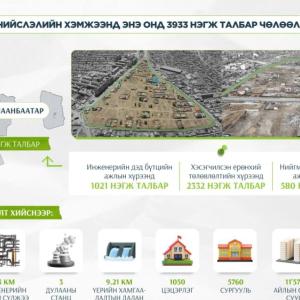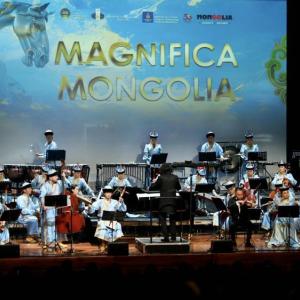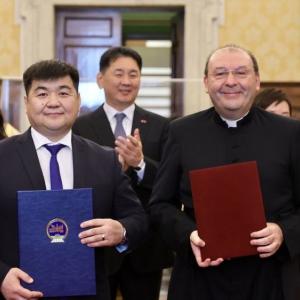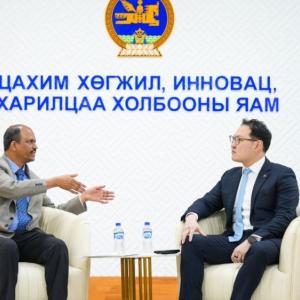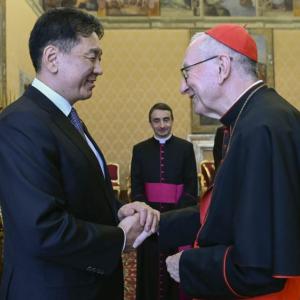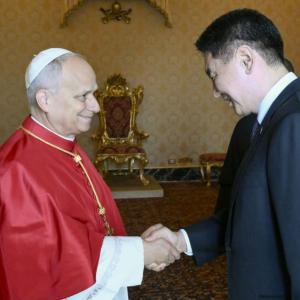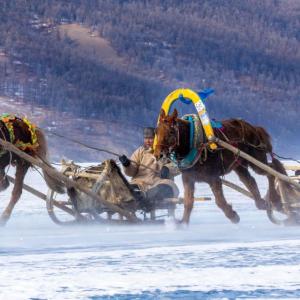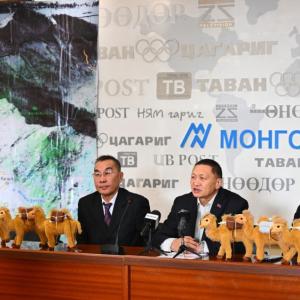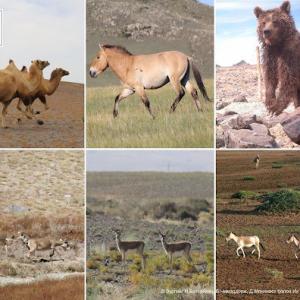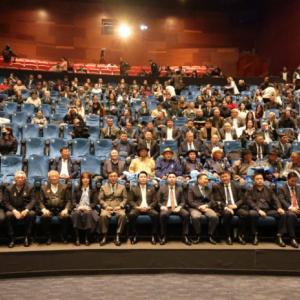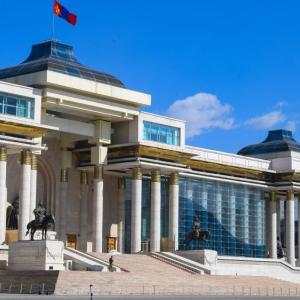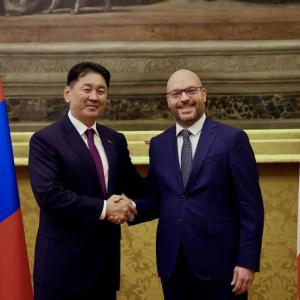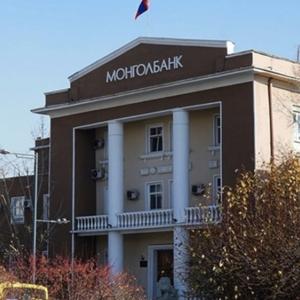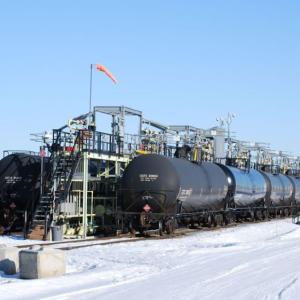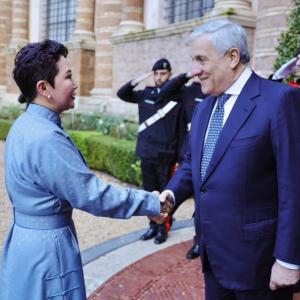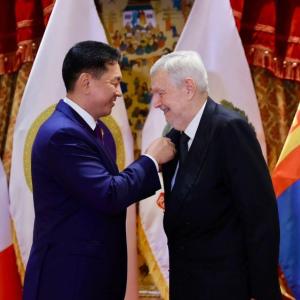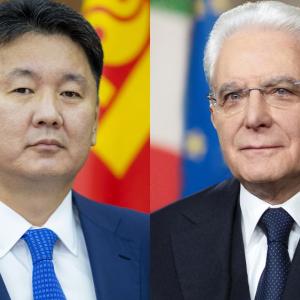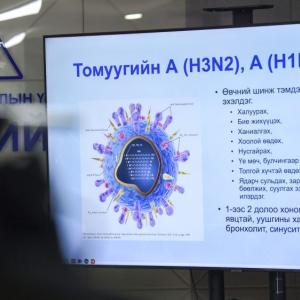Joint Declaration on the Strategic Partnership Between Mongolia and the Republic of Kazakhstan
Politics
Ulaanbaatar, October 29, 2024 /MONTSAME/. At the invitation of the President of Mongolia Khurelsukh Ukhnaa, President of the Republic of Kazakhstan Kassym-Jomart Tokayev is paying a State Visit to Mongolia on October 28-29, 2024.
The Heads of the two States (referred to as the “Parties”) highly appreciated the steady development of the traditional friendly relations and cooperation between Mongolia and the Republic of Kazakhstan which were strengthened within the framework of the “Protocol on Establishing Diplomatic Relations” of 1992, the “Agreement on Friendly Relations and Cooperation between Mongolia and the Republic of Kazakhstan” of 1993, and the principles of the “Joint Declaration of Mongolia and the Republic of Kazakhstan” of 1998, 2007, and 2008, respectively.
The Parties also welcomed the expanding friendly relations and cooperation between Mongolia and the Republic of Kazakhstan in various fields such as politics, trade, economy, agriculture, transportation, logistics, education, culture, and tourism, as well as deepening cooperation on regional and international arena.
The Parties agreed that deepening the traditional friendly relations between Mongolia and the Republic of Kazakhstan, in accordance with the United Nations Charter and based on respect for independence, sovereignty, equality, territorial integrity, and universally accepted principles and norms of international law, will play an important role in strengthening peace and sustainable development not only on the bilateral level but also in the Central Asian region and at the international level and decided to elevate the relations between the two countries to the level of a Strategic Partnership.
The Parties, based on their Strategic Partnership, decided to deepen their cooperation in the following five main areas: 1. Politics, security, and defense 2. Trade and economy 3. Education, culture, science, and information technology 4. Transport, logistics, tourism, and people-to-people exchange 5. Cooperation in regional and international arena.
One. Politics, Security, and Defense:
The Heads of the two States agreed to deepen close relations between the Heads of State and Government of the two countries to strengthen political trust through high-level mutual visits and regular dialogue mechanisms. The Parties also stressed the importance of strengthening ties between the highest legislative bodies and expanding relations between the National Security Councils and law enforcement agencies for increased bilateral engagement aiming to ensure stability in the region.
To exchange high-level visits and hold consultative meetings to strengthen mutual political understanding and consistent support of cooperation between the legislative bodies and friendship groups in Parliament.
To expand cooperation in the field of security and defense of the two countries, establish a mechanism for consultations between the Ministries of Defense, mutually appoint military attachés, expand military cooperation, and organize joint field exercises.
Expressed their readiness for close cooperation in countering international terrorism, religious extremism, illegal trafficking in drugs, arms smuggling, transnational organized crime, illegal trafficking in nuclear materials, and illegal migration at the bilateral level. In this context, the Parties will support the strengthening of ties between prosecutorial, judicial, law enforcement, and border protection organizations, as well as special agencies of both countries.
Considering the active role that both countries play in nuclear disarmament and non-proliferation, efforts to enhance cooperation and interaction between Nuclear-Weapon-Free Zones will be strengthened.
The Parties welcomed the signing of the Memorandum of Cooperation in the field of nuclear energy between the Executive Office of the Atomic Energy Commission of Mongolia and the Ministry of Energy of the Republic of Kazakhstan.
To hold political and consular consultations between the Ministries of Foreign Affairs of Mongolia and the Republic of Kazakhstan on a regular basis and renew the plan for cooperation between the Ministries of Foreign Affairs for 2025-2027 toward further strengthening cooperation in various areas. The Parties agreed to intensify the mechanism for exchanging views on issues of bilateral relations and the cooperation agenda, as well as international and regional issues of mutual interest.
To foster and coordinate expanding exchanges between Mongolia and the Republic of Kazakhstan’s local areas. Continue to promote friendship of sister cities, facilitate friendly exchanges between the youth of the two countries.
Two. Trade and Economy:
The Parties have agreed to expand mutually beneficial economic cooperation by leveraging the advantages and development resources of Mongolia and the Republic of Kazakhstan, such as modern technology, agriculture, light industry, and the abundant natural resources of Mongolia. The Parties have also agreed to expand collaboration, bearing in mind the objectives of Mongolia’s long-term development agenda “Vision-2050”.
To organize the meetings of the Intergovernmental Commission on Trade, Economic, Scientific, Technical, and Cultural Cooperation between Mongolia and the Republic of Kazakhstan on a regular basis and to enhance the dialogue on trade, investment, and economic cooperation between the two countries. If necessary, bilateral working groups will be established in specific areas.
To strengthen the legal and regulatory framework of both parties to further expand and develop trade and economic cooperation. The Parties highly appreciated the establishment of the “Roadmap for enhancing trade and economic cooperation between Mongolia and the Republic of Kazakhstan for 2025-2027”. The Parties also agreed to expedite the process of concluding the “Agreement on Investment Promotion and Mutual Protection,” which will play a crucial role in creating a favorable investment climate between the two countries.
Within the framework of increasing trade turnover between Mongolia and the Republic of Kazakhstan to 500 million USD and to diversify the export-import of goods, the Parties will collaborate in exporting wool, cashmere, and leather products from Mongolia to the Kazakhstan market, and in enhancing the volume of fruit and vegetable imports from Kazakhstan to the Mongolian market.
To expand cooperation in the fields of animal husbandry, agriculture, light industry, and small and medium businesses, taking into account the rich resources of the agricultural sector of both countries.
To cooperate in implementing large-scale joint projects and programs in the field of agriculture, effectively utilizing the vast plains and pastures of Mongolia.
To facilitate export-import activities, intensify cooperation between the veterinary and quarantine institutions of the two countries, establish a unified information system, and increase the number of veterinary certificates for food products.
To continue cooperation in the field of animal health protection including vaccination, taking into account the international standards of the World Organisation for Animal Health (WOAH).
The Parties welcomed the signing of the Memorandum of Understanding on cooperation between the Ministry of Food, Agriculture and Light Industry of Mongolia and the Ministry of Agriculture of the Republic of Kazakhstan.
The Parties welcomed the signing of the Memorandum of Understanding between the General Administration of Veterinary Medicine of Mongolia and the Committee for Veterinary Control and Supervision of the Ministry of Agriculture of the Republic of Kazakhstan on cooperation in the field of veterinary service and quarantine.
The Parties welcomed the establishment of the Business Council under the National Chamber of Commerce and Industry of Mongolia and the Chamber of International Commerce of the Republic of Kazakhstan. They emphasized the importance of mutual visits of representatives of enterprises and wealth creators, participation in exhibitions and trade organized in both countries, as well as the regular and effective organization of bilateral business forums.
Three. Education, culture, science, and information technology:
The Heads of the two States agreed to strengthen the cooperation in such promising areas as education, science, electronic technology, and communications in accordance with the era of modern information technology, deepen cultural ties between Mongolia and Kazakhstan and thus cooperate in spreading nomadic culture to the world.
The Mongolian side expressed high appreciation for the provision of higher education to Mongolian students under the scholarship of the Government of the Republic of Kazakhstan.
To strengthen the cooperation in the field of education and human resources development, including the implementation of any other scholarship programmes to strengthen the capacity of higher education ensuring sustainable development in the future.
To provide mutual support for development of Mongolian and Kazakh studies, as well as to support the training of teachers of language, culture and geography of the two countries and specialists and researchers and to cooperate in disseminating Mongolian language in Kazakhstan and training specialists in Mongolian language.
The Parties expressed willingness to work together to create training opportunities for Mongolian, Kazakh language teachers.
To work together to take the collaboration of scientific and strategic research institutions to a new level, share the best practices in this context, enhance joint research works, mutually support historical and archaeological research and jointly introduce felt tent dwellers and nomadic culture traditions to the world.
As the Mongolian side expressed interest in establishing ties with the Turkic Academy at the level of a scientific institution and developing cooperation, the Parties noted the possibility of cooperation in the field of historical research.
The Parties welcomed the expansion of cooperation in the field of information technology, e-government, space technology, digital development and communications and agreed to cooperate in the implementation of joint projects and programs for the development of electronic infrastructure, e-government and support for various sectors development using information technology, optimization of information infrastructure activities and exchange of experience in the use of advanced technologies.
The Parties welcomed the signing of the Memorandum of Understanding between the Ministry of Digital Development and Communications of Mongolia and the Ministry of Digital Development, Innovations and Aerospace Industry of the Republic of Kazakhstan in fields of information and communication technologies.
The Parties emphasized that Mongolia and the Republic of Kazakhstan are closely connected by history, heritage and nomadic traditions and customs since immemorial times, and the Parties will implement joint cultural programs, research resources and study the facts and monuments related to the unique heritage of Mongolian and Kazakh history and culture, and develop the Mongolian and Kazakh studies and work together in scientific joint research works in the field of intangible cultural heritage, and expansion of cooperation between museums.
In the context of expanding cooperation in the field of culture, developing relations between the Ministries of Culture and related establishments, creating joint working groups, exchange programs for children and youth, as well as cooperation in the field of sports, culture and creative production will be actively supported.
The Parties welcomed the signing of the Memorandum of Understanding between the Ministry of Culture, Sports, Tourism and Youth of Mongolia and the Ministry of Culture and Information of the Republic of Kazakhstan on cultural cooperation.
The Parties welcomed the fact that scientists from both countries conducted archaeological excavations in the Bulgan, Arkhangai and Khentii provinces of Mongolia and discovered valuable monuments illuminating the lives, culture and religion of the nomads in Central Asia. In the future, the Parties decided to conduct research works within a specific topic on a long-term and sustainable basis.
Four. Transport, logistics, tourism, and people-to-people exchange:
As part of the expansion of trade and economic relations, the Parties have agreed to intensify air transportation and establish direct air service between Ulaanbaatar and Astana. The Parties also aim to gradually create new transport and logistics routes, expand cooperation in the field of tourism, increase people-to-people exchange, and emphasize the importance of building stronger ties between the peoples of the two countries.
The Parties appreciated the expansion of road transport links between Mongolia and the Republic of Kazakhstan, including direct air and road transport, which plays an important role in increasing trade, economics, tourism, and people-to-people exchange.
The Parties have decided to continue seeking solutions and opportunities to address problems and obstacles in the rail, road, and air transport sectors of the two countries through dialogue with the countries in the region.
The Parties welcomed the signing of the Memorandum of Understanding between the Ministry of Road and Transport Development of Mongolia and the Ministry of Transport of the Republic of Kazakhstan.
The Parties welcomed the signing of the Agreement between the Government of Mongolia and the Government of the Republic of Kazakhstan on cooperation in the field of aviation search and rescue.
The Parties concurred on the promotion of cooperation toward strengthening connectivity within and beyond the region, including “Trans-Caspian International Transport Route” (Middle Corridor).
In order to increase the frequency of regular direct flights between the two countries, the Parties will cooperate in exploring the possibility of direct flights between Ulaanbaatar and Astana.
Recognizing that the tourism sector plays an important role in bilateral cooperation between the two countries, the Parties will strengthen cooperation between tourism organizations and agencies, jointly organize tourism events, and promote and support the development of tourism based on nomadic culture and customs.
The Parties have agreed to increase investment in the tourism sector and cooperate in the development of tourism infrastructure and facilities.
The Parties welcomed the signing of the Memorandum of Understanding between the Ministry of Culture, Sports, Tourism and Youth of Mongolia and the Ministry of Tourism and Sports of the Republic of Kazakhstan on cooperation in the field of tourism.
The Parties welcomed the signing of the Agreement on cooperation on pension between the Government of Mongolia and the Government of the Republic of Kazakhstan.
Five. Cooperation on regional and international arena:
The Heads of the two States have agreed to strengthen regional and international cooperation, as well as to deepen collaboration within the framework of the UN and other international organizations.
Mongolia and the Republic of Kazakhstan have actively collaborated within the UN, the IAEA and other international organizations and highly valued each other’s mutual support in elections to international organizations.
Both countries have similar positions on international and regional issues and expressed their continued mutual support for initiatives within the framework of international and regional organizations such as the United Nations, the World Trade Organization, the Conference on Interaction and Confidence-Building in Asia, and the SCO.
The Parties expressed their commitment to actively contribute to global efforts to combat climate change, address desertification, and protect the environment. In this context the Republic of Kazakhstan has confirmed its participation at the high level in the forthcoming 17th Conference of the Parties to the UN Convention to Combat Desertification, which will be held in 2026 in Mongolia. Mongolia has expressed its participation at the high level in the Regional Climate Summit under the auspices of the UN in 2026 in the Republic of Kazakhstan.
The Parties concurred on the achievement of the common goal of carbon neutrality/net-zero following various pathways. In this regard, both sides welcomed the progress of cooperation projects by the private sector in the energy sector.
The Republic of Kazakhstan has also supported Mongolia’s initiative “Ulaanbaatar Dialogue on Northeast Asian Security” and confirmed that it will continue to actively cooperate within the framework of this initiative. The Parties have agreed to coordinate the two countries’ efforts on regional security issues and expand cooperation further.
The Parties highlighted the importance of implementing the UN 2030 Agenda for Sustainable Development and expressed their commitment to enhancing cooperation in areas such as poverty reduction, food security, climate change mitigation, and support for sustainable development.
To advance the fight against climate change, desertification, land degradation, and afforestation, the Parties agreed to coordinate the implementation of the “One Billion Trees” national movement initiated by the President of Mongolia and the “Two Billion Trees” national program initiated by the President of the Republic of Kazakhstan.
The Parties expressed high appreciation for their collaboration within the “Multilateral Agreement for the Establishment of an International Think Tank for Landlocked Developing Countries” which was inaugurated at Mongolia’s initiative.
Mongolia commends Kazakhstan’s initiative to establish a special multilateral body – the International Agency for Biological Safety (IABS).
The State Visit of President of the Republic of Kazakhstan to Mongolia was significant in elevating the traditional friendly relations between the two countries to the level of “Strategic Partnership,” turning a new page in the history of relations between Mongolia and Kazakhstan.
President of the Republic of Kazakhstan Kassym-Jomart Tokayev expressed gratitude to President of Mongolia Khurelsukh Ukhnaa and the people of Mongolia for the warm welcome and extended an invitation to President Khurelsukh to pay a State Visit to the Republic of Kazakhstan at his convenience.
 Ulaanbaatar
Ulaanbaatar






